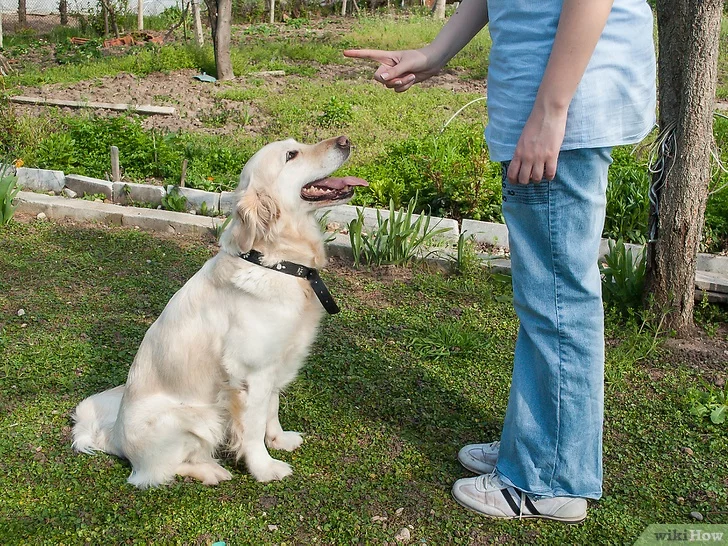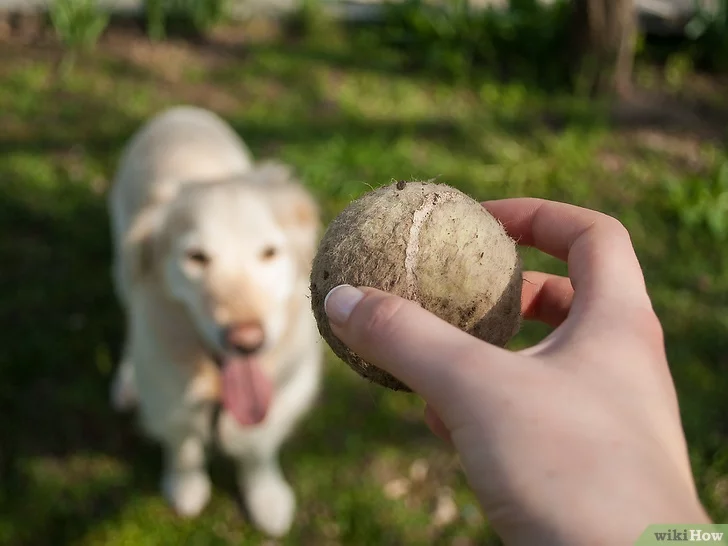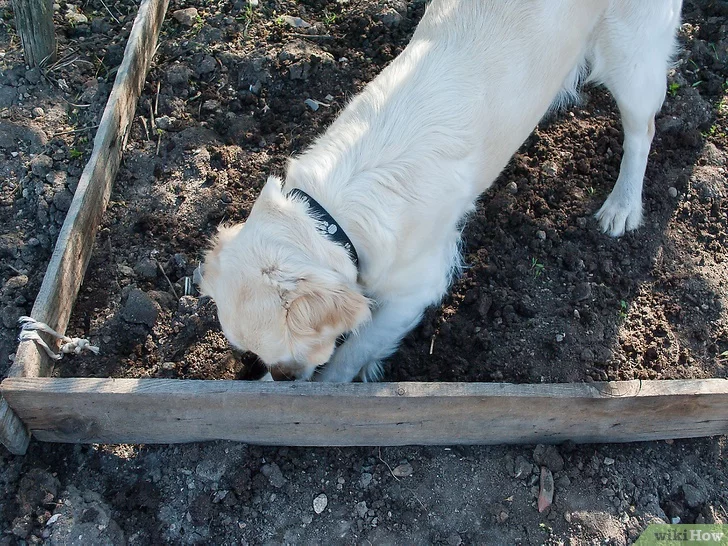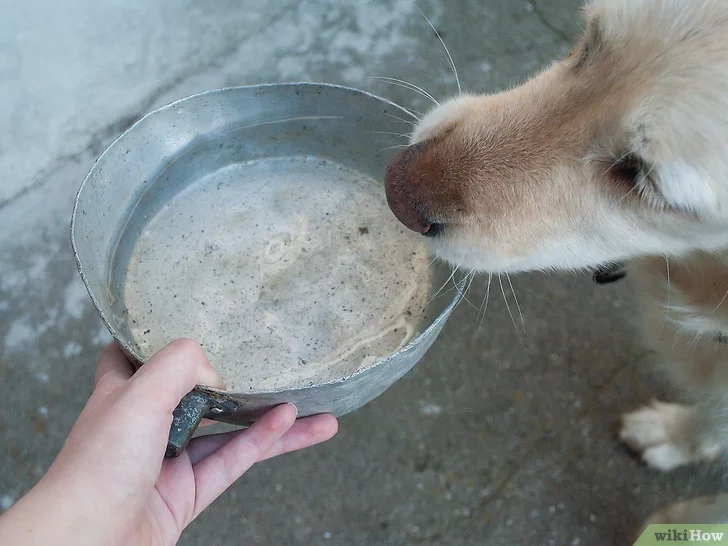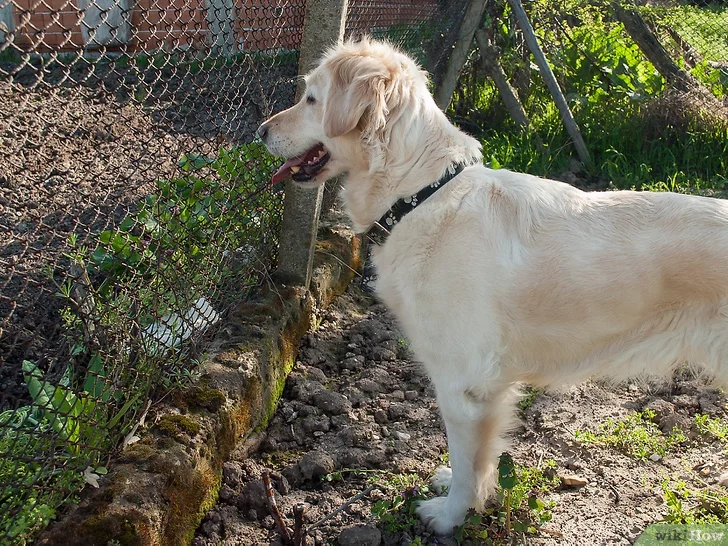A dog digs for a variety of reasons — boredom, the smell of an animal, a desire to hide something to eat, a desire for satisfaction, or simply to explore the depths of the soil for moisture. If you want some practical ways to keep your dog from digging holes in your backyard, there are a lot of tips and tricks you can read.
1. Train Your Dog
1.1 Take your dog and go to a basic training class.
Use a calm and confident approach to your basic training and your dog should see you as its leader. Dogs think in terms of dominance, balance and command. When everything is going right, your dog should show you
greater respect and remember all the instructions taught during training.
Teach your dog things like “Stop! “Sit,” “get down,” that kind of basic command. Practice these for at least ten minutes a day.
1.2 Eliminate Dog Boredom
Dogs often dig holes out of boredom. If your dog often stares at a fence for long periods of time, whines in a low voice, or is hyperactive like a freak digging a hole, he may be bored. So don’t let your dog be bored all the time:
Give him toys and take a walk from time to time, especially if your dog is young and doesn’t have other recreational activities. Give these toys a spin every now and then to keep your dog excited.
Walk or run with your dog. Walk the dog at least twice a day and consider throwing out something like a tennis ball to really get some exercise. When the dog gets tired, he won’t dig.
Let your dog play with other dogs. Take your dog to a dog park where he can smell, walk, or find a companion of his choice. Dogs never get bored when other dogs are around.
1.3 Moderate Frustration Education
If you train your dog, he will only respond by digging holes. So you need to find a way to look unhappy when the dog digs a hole. “Remember: there is no point in punishing the dog after he has already dug the hole, and it may cause him to hold a grudge and dig again.
- Put a spout hose in the area where the dog often digs. While the dog is digging, turn on the hose and let out the water.
- Fill the area with rocks so the dogs can’t touch them anymore. Large, heavy stones are most effective because they are difficult to move.
- Lay barbed wire in a shallow layer of soil. The dog felt bad about tripping over the wire. This works best around a fence.
1.4 Pay More Attention to Your Dog
Your dog may think that digging a hole in your beautiful garden will get your attention, even if it’s the wrong kind. If you think it might be a cause, ignore it after it burrows and focus on something else — good behavior.
Make sure your dog has plenty of time to spend with you in other ways. Happy dogs don’t need to look for attention in all the wrong places.
2. Change your Dogs’ Living Environment
2.1 Build a sand pit.
A sandpit in the garden would be a good place for a dog to dig. Encourage your dog to play in areas other than those where he is restricted.
Surround the sand pit and fill it with fresh soil.
Bury gadgets and odors in the dog’s sandbox and encourage your dog to notice it and use it.
If you catch your dog digging in an unmarked area, it’s fair to say “don’t dig” and take him to a specific area where he can dig peacefully and undisturbed.
2.2 Create a shady spot outside for your dog.
If you don’t have a sunshade outside to keep him cool during the summer, he may dig a hole to find his own shelter from the heat. That’s especially true if he’s digging near buildings, trees and water.
- Give your dog a great, comfortable kennel to hide from the heat (and cold).
- To protect against heat and extreme cold, don’t let your dog go outside without adequate protection.
- Make sure your dog has a bowl full of water and won’t knock it over. Don’t leave it without water all day.
2.3 Get rid of any rodents that your dog might be chasing.
Some dogs are natural hunters and love to chase. If there is a hole in the roots of a tree or other plant, or a path leading to the hole, your pet may be hunting another pet it wants.
Find a “safe” way to keep rodents out, or make your area unattractive to rodents. (If you’re not sure what animal you’re dealing with, call an expert.)
“Do not” use any poison to control rodents in your area. Any poison that can harm rodents is also a potential threat to your dog.
2.4 Don’t let your dog run away.
Your dog may try to escape the house, find something, go somewhere, and just run away. If the hole it dug was near a fence, it would be more likely. If you think this might be the case, try exploring exactly what your dog is
going to run off to and reward him with something to keep him in the yard.
Put some wire in the dirt near the fence. Make sure there are no sharp objects nearby, or at least away from your dog.
Line up near the fence is stealing, blocking the exit.
It is best to bury a fence deep in the ground. Generally, a fence buried 0.3 to 0.6 meters deep in the ground is less likely to be dug up.
2.5 Eliminate temptation.
The more temptations a dog has, the harder it is to stop digging. So what’s your solution? Eliminate temptation and make your orders better executed!
- Dogs enjoy digging up fresh dirt. If you work in a garden, remove fresh dirt from where your dog can touch it, or cover it up.
- Go out there and dig up the bones or whatever your dog buried. Don’t let your dog see you doing it. Fill the hole back in when you’re done.
- If you do gardening, don’t let your dog see you digging, as this will send a positive message to him.
- Keep the garden clean.
- Get rid of attractive smells.
- Solve any rodent or other small animal problem.
Post time: May-24-2022

